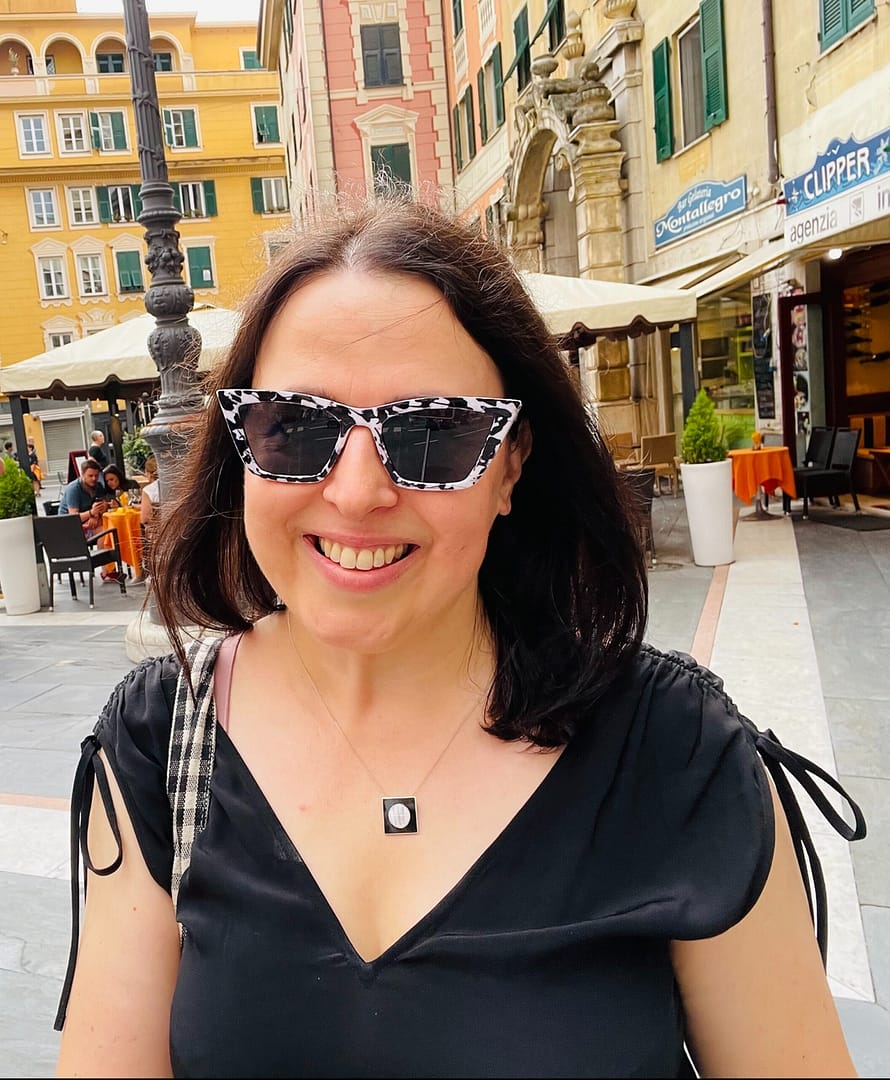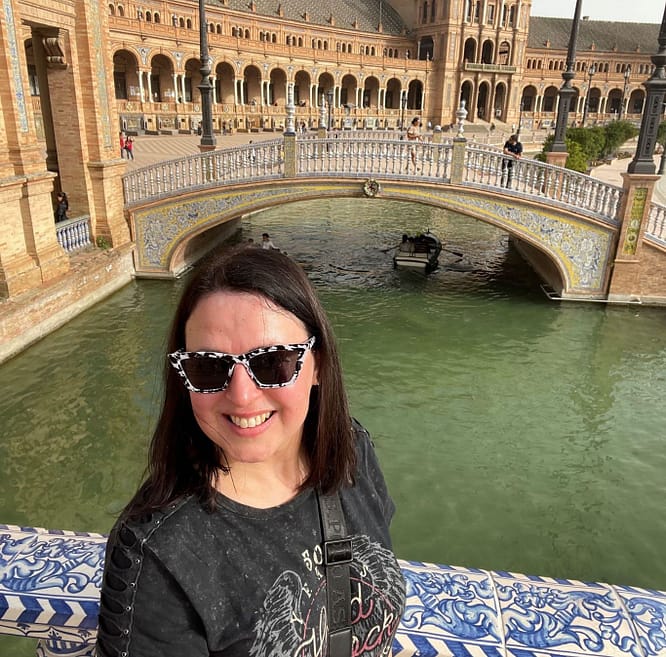I’ve always held a fascination for the Holy Week (Semana Santa) processions in the south of Spain. There’s something oddly theatrical and creepy about the pointed hoods & long capes worn by the brotherhoods (hermanadas) as they march through the streets. Opting out of spending a traditional Easter at home in Ireland this year, I chose instead to spend a long weekend break in the Andalusian capital of Seville. Goodbye rain and hello sunshine!
Triana House
I was so lucky to have discovered the unique boutique hotel & luxury B&B, Triana House. Located in the heart of the bustling Triana neighbourhood in the most charming part of Seville, the decor is a treat for the eyes and the soul. Meticulously decorated in Art Deco style, the seven guest rooms pay homage to each of the Andalusian provinces. The design of the reception rooms and courtyard is an eclectic mix of Moroccan, Andalusian and Roman style architecture.
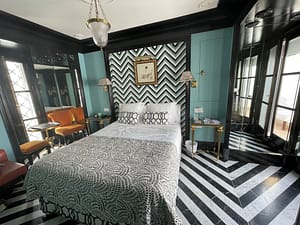
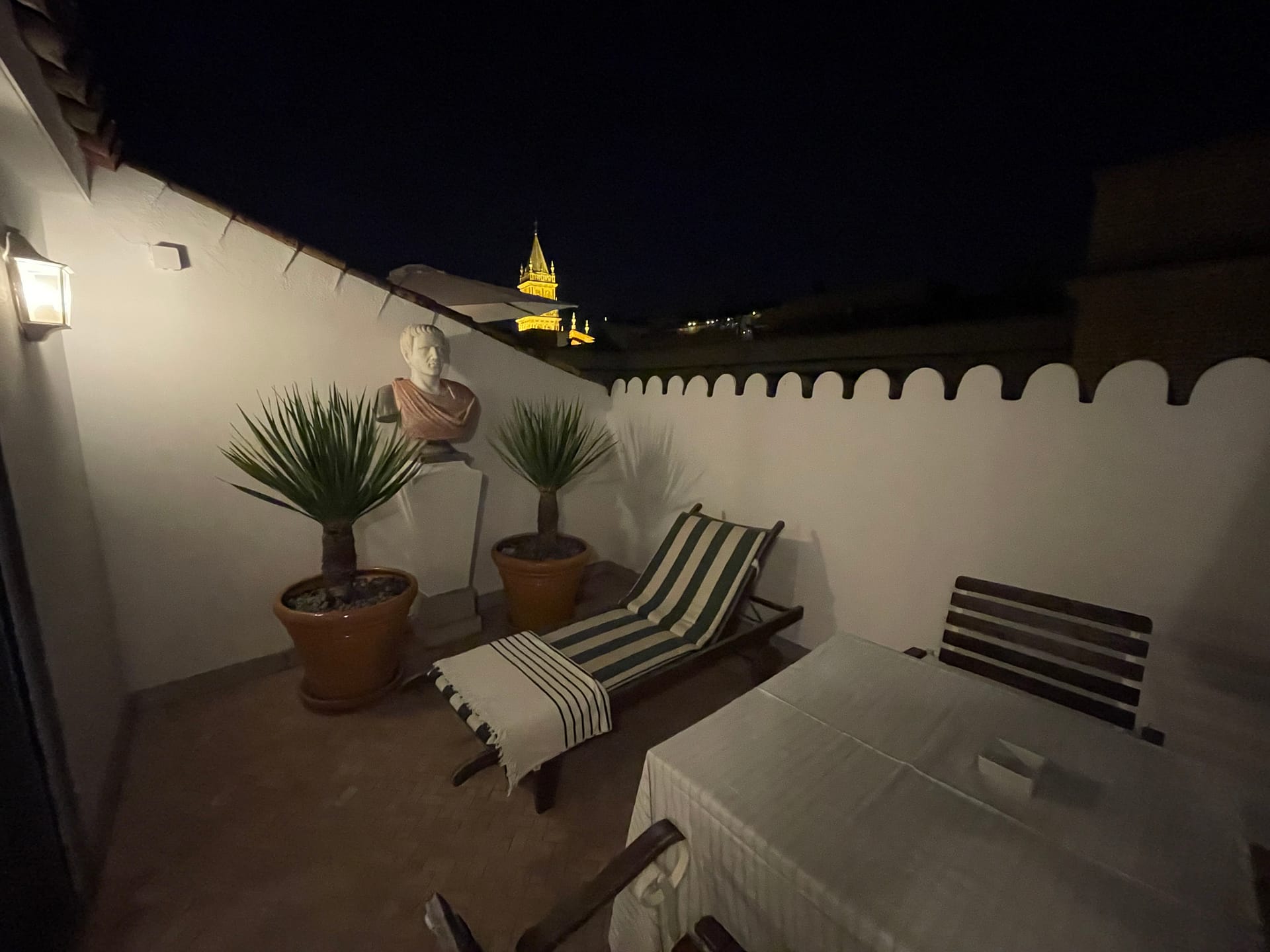
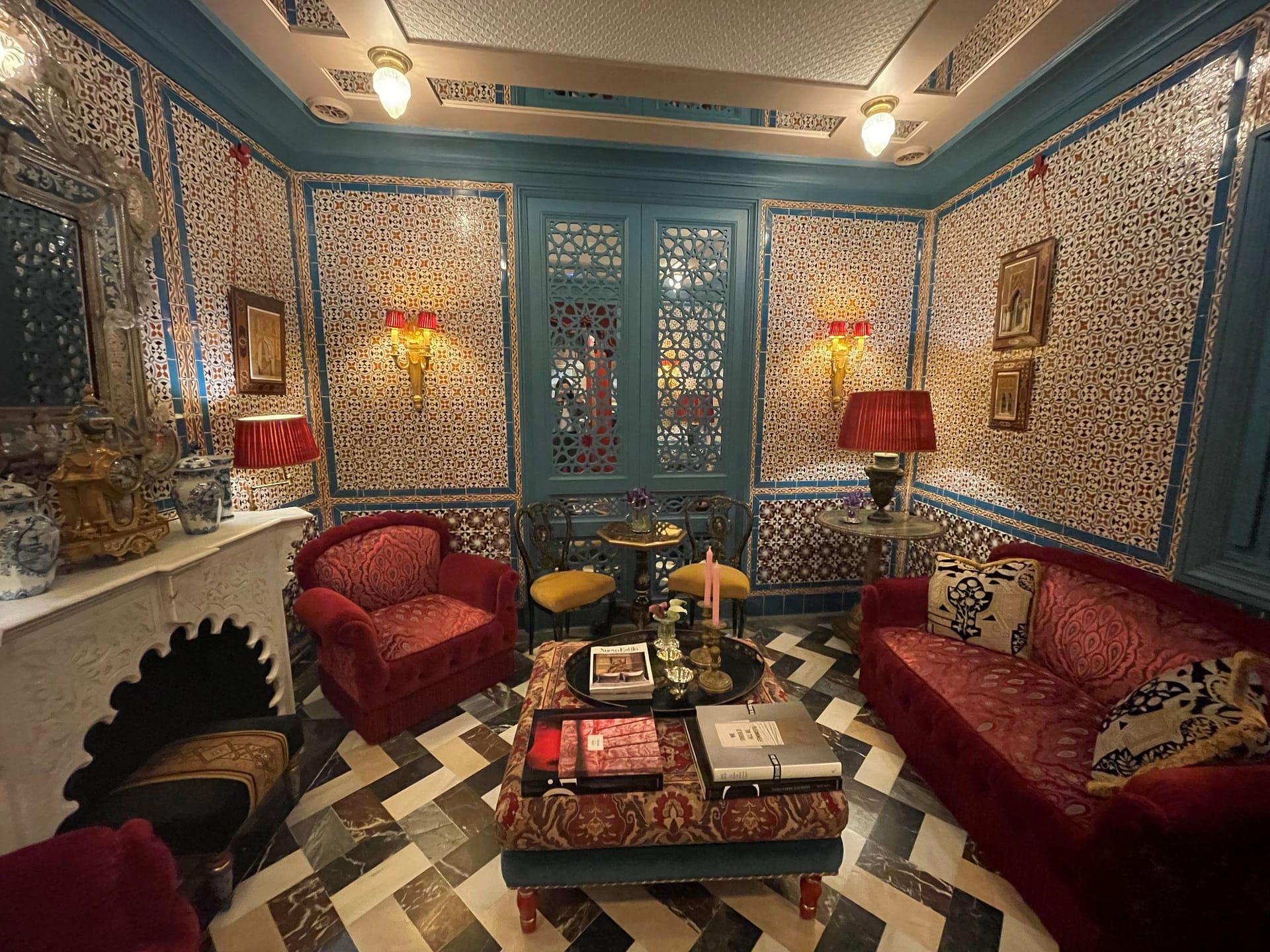
I was greeted on arrival by the lovely Grazia at the front desk. Throughout my stay, she was both attentive and hospitable, ensuring I wanted for nothing. She showed me up to my room on the top floor known as the ‘Beijing room‘, decorated in stunning Art Deco style. The real treat was discovering I had access to a private terrace complete with sun lounger. I certainly found the ideal place to relax and unwind after a busy day of sightseeing!
Holy Week in Seville
The next morning, the sound of drums and trumpets from the street below heralded the Good Friday (Viernes Santo) procession. I headed out to Santa Ana church in the Triana neighbourhood. A crowd of locals gathered outside awaiting the procession to enter. Members of the brotherhood wore purple pointed headpieces (capirotes) and long white capes. A few carried trumpets with banners attached and a large cross adorned in gold & silver. A child dressed in a miniature version of the costume, handed out small cards of the Virgin Mary to the crowd. Overall it was fascinating, moving and very respectful. I felt I had witnessed some very special street theatre.
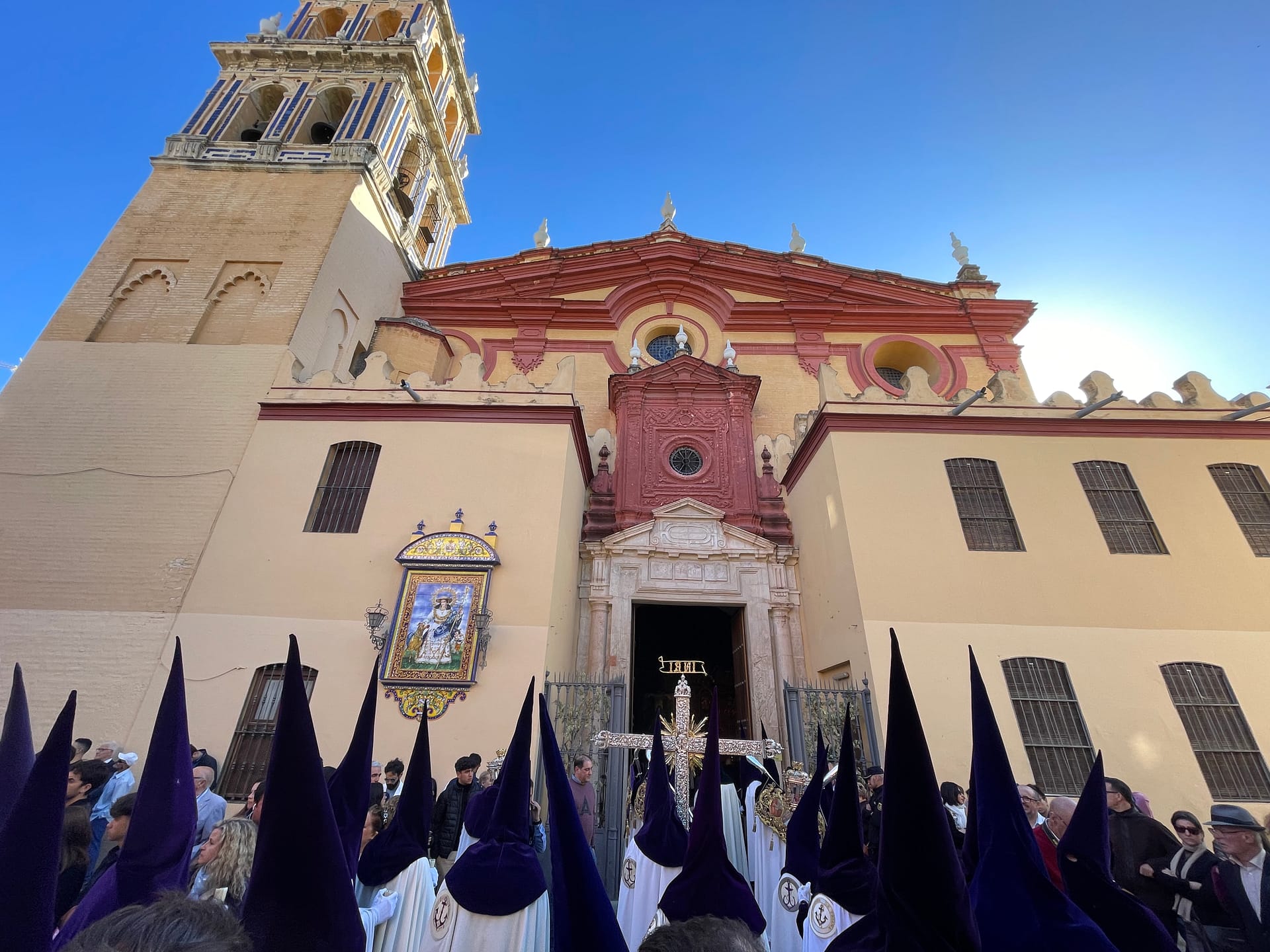
Tapas in Triana
One of the reasons I travelled to Seville was to sample some authentic Spanish tapas. The taxi driver who picked me up at the airport recommended some local bars serving good tapas. Around 7pm I headed to a street terrace bar, Tribuna, only a 6 minute walk from Triana House. After perusing the menu, I ordered oxtail crepe (robo de toro), chicken ‘tears’ (lagrimitas de pollo) washed down with a refreshing light beer, Cruzcampo. Mouth-wateringly delicious and great value for money. The total bill came to only €11.60 – a fraction of the price in Dublin!
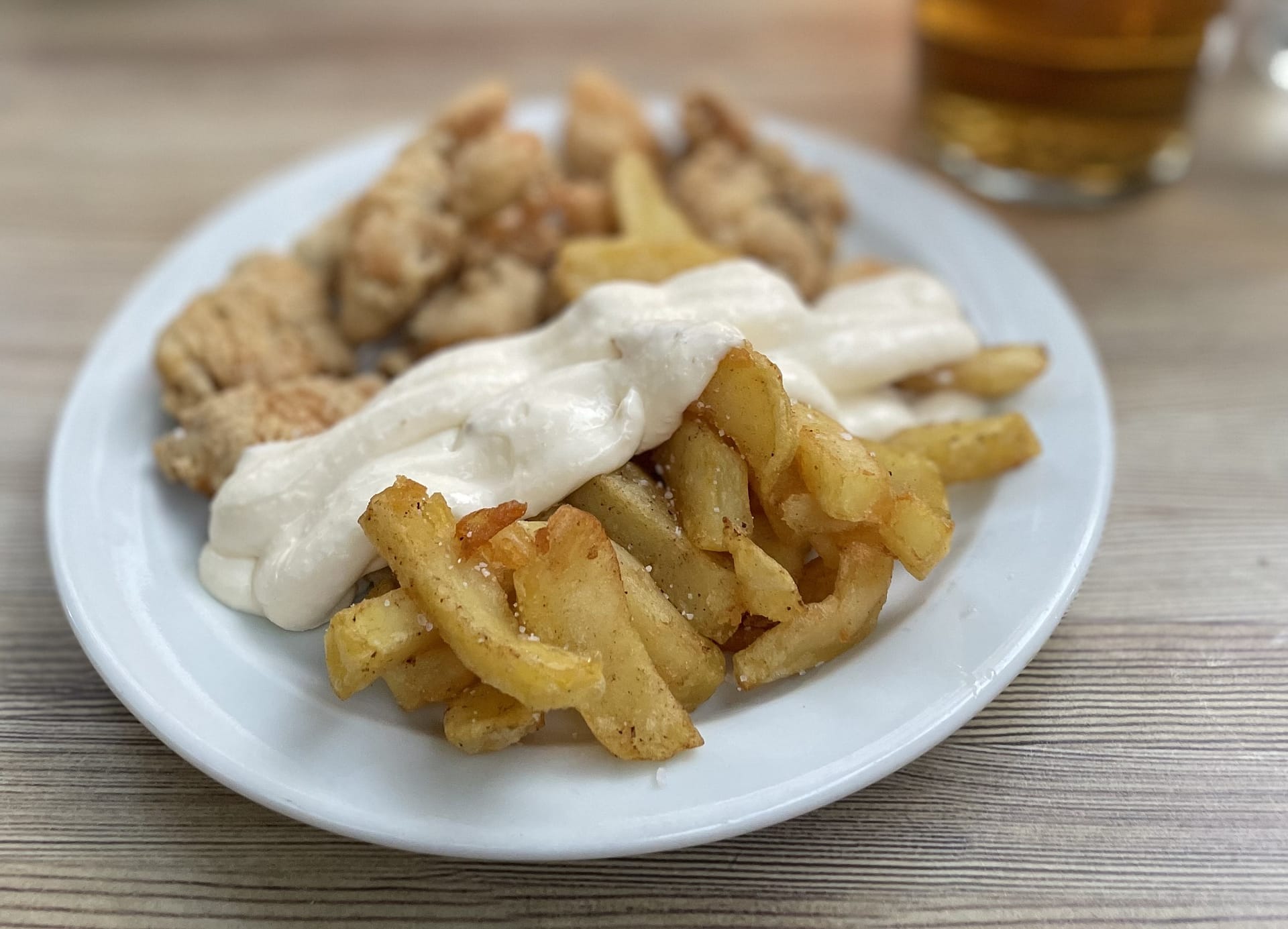
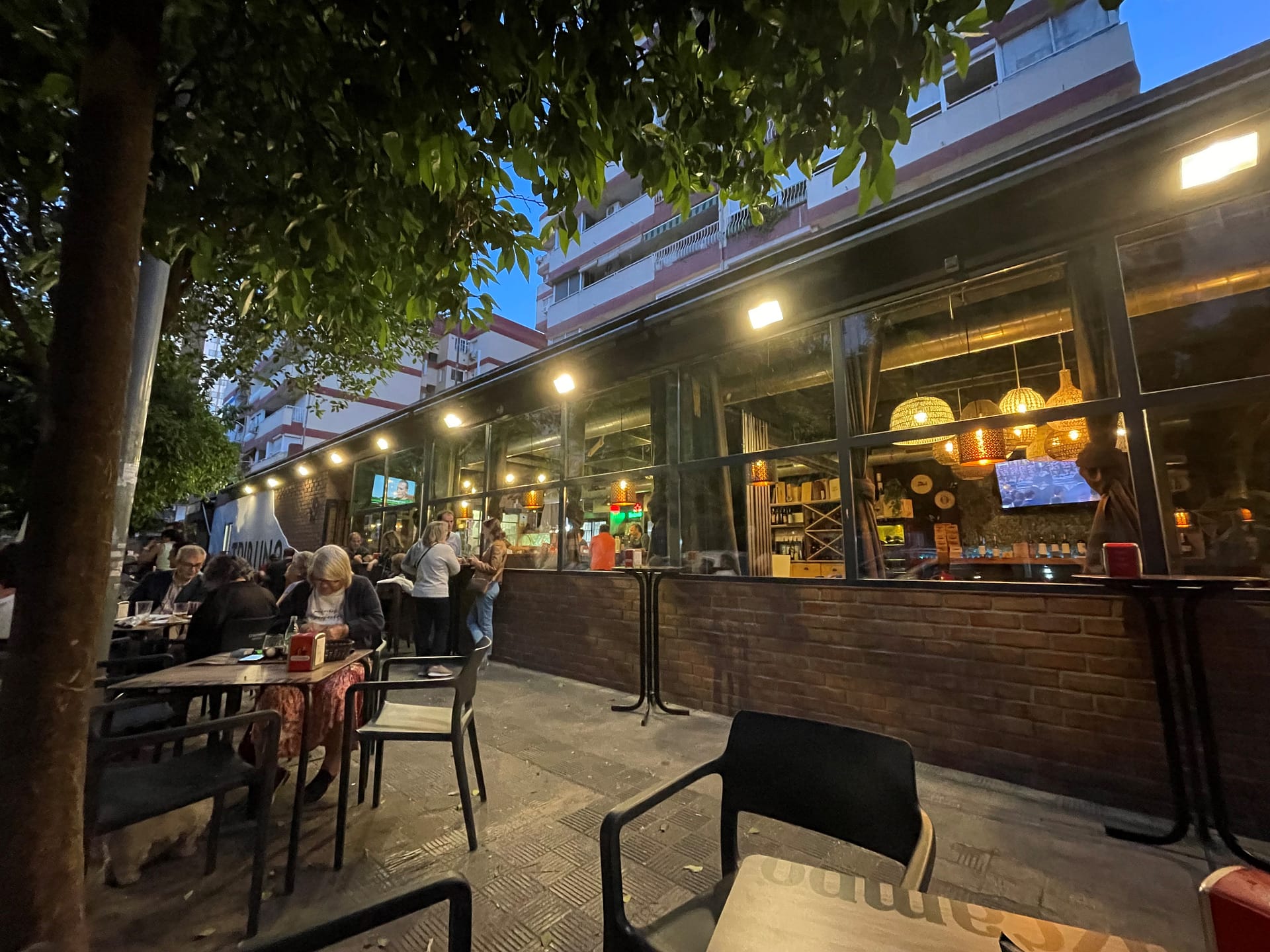
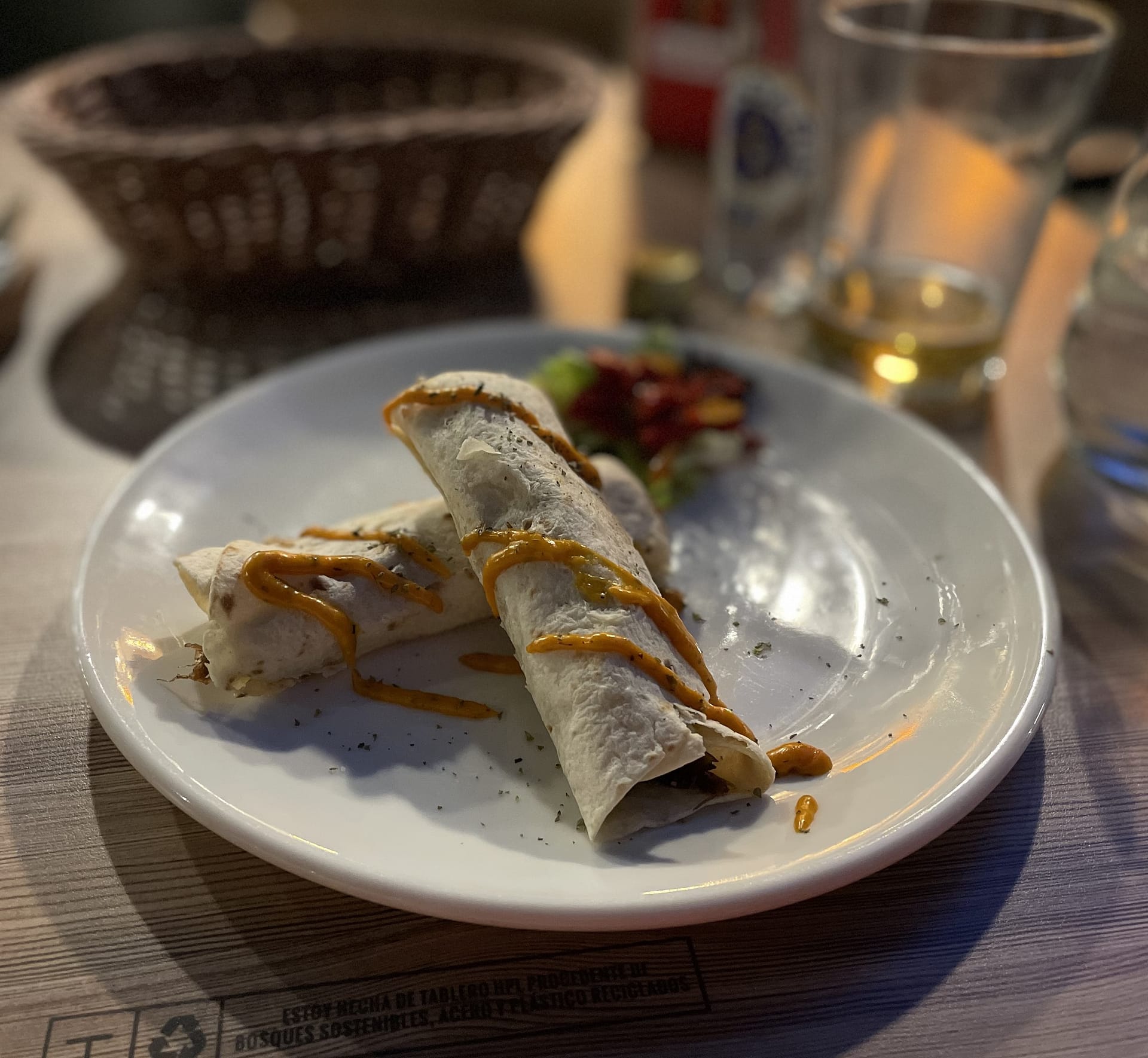
Seville Cathedral
Originally a mosque, Seville Cathedral is the largest Gothic church in the world. The cathedral contains Pierre Dancart’s masterpiece, the world’s largest altar containing over 1000 holy figures. Standing beneath the colossal wrought iron gates felt like arriving at the gates of heaven! One of the many stunning artworks in the cathedral is the tomb of the great navigator, Christopher Columbus. Built in 1899, his tomb is held up by four allegorical figures representing the four kingdoms of Spain during Columbus’s life, Castille, Aragon, Navara & Leon. I recommend booking a Get Your Guide tour of Seville Cathedral that includes the Giralda tower & the Royal Alcazar Palace.
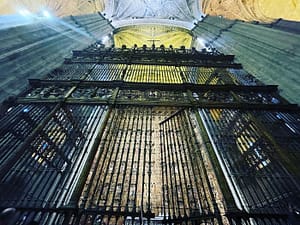
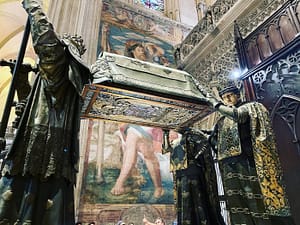
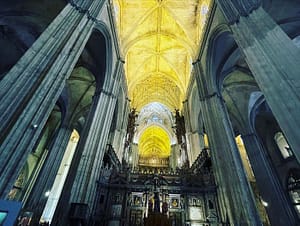
Giralda Tower
The Giralda Tower is the bell tower of Seville Cathedral. It was originally built in the 12th century as the minaret for the Great Mosque of Seville in Moorish Spain. It takes about 10 minutes to walk up the 34 ramps to the top where you can admire panoramic city views of Seville. The ramps were built to accommodate the muezzin who would ride his donkey to the top of the tower!
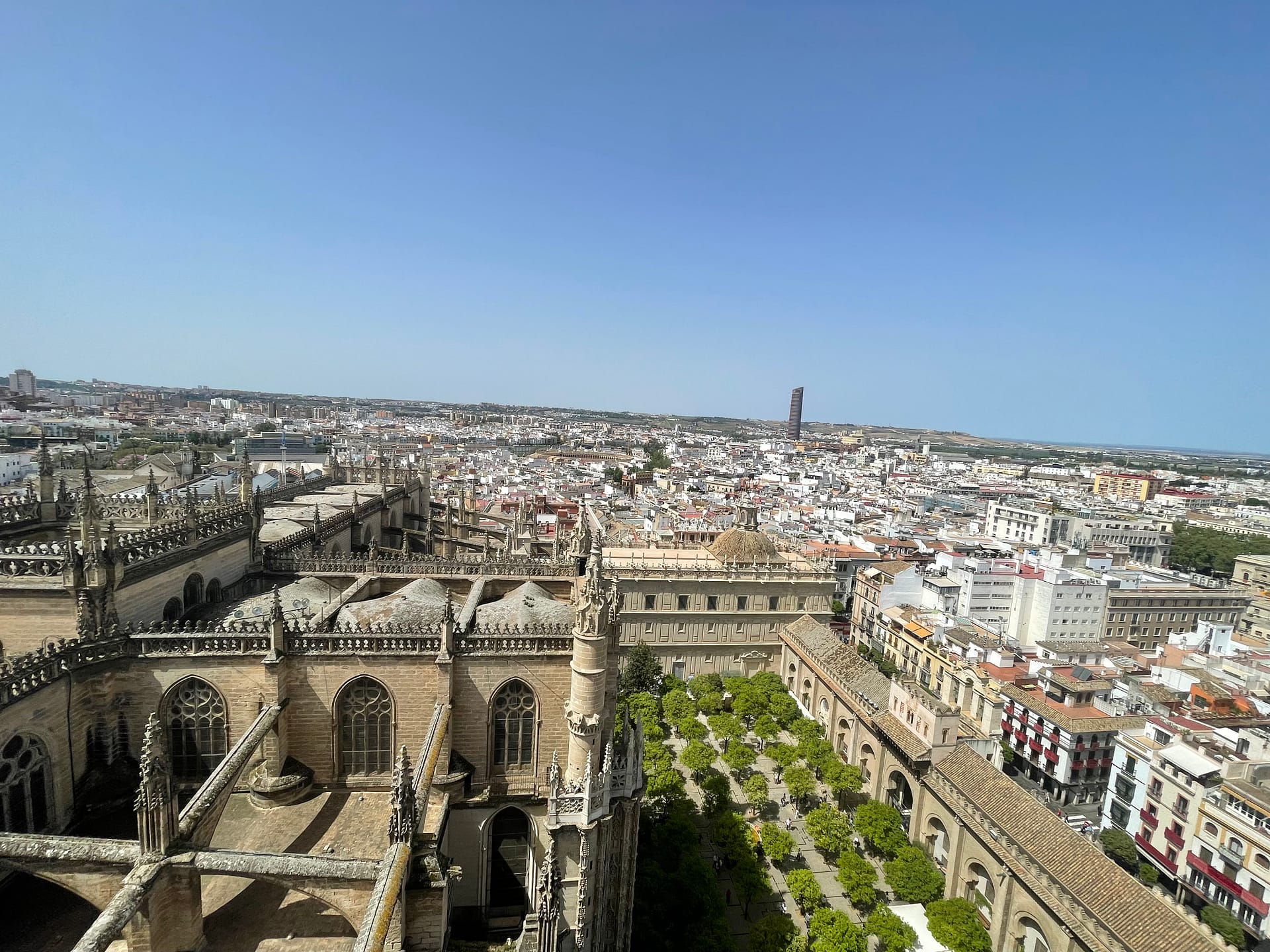
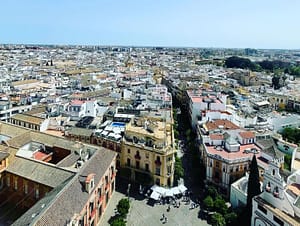
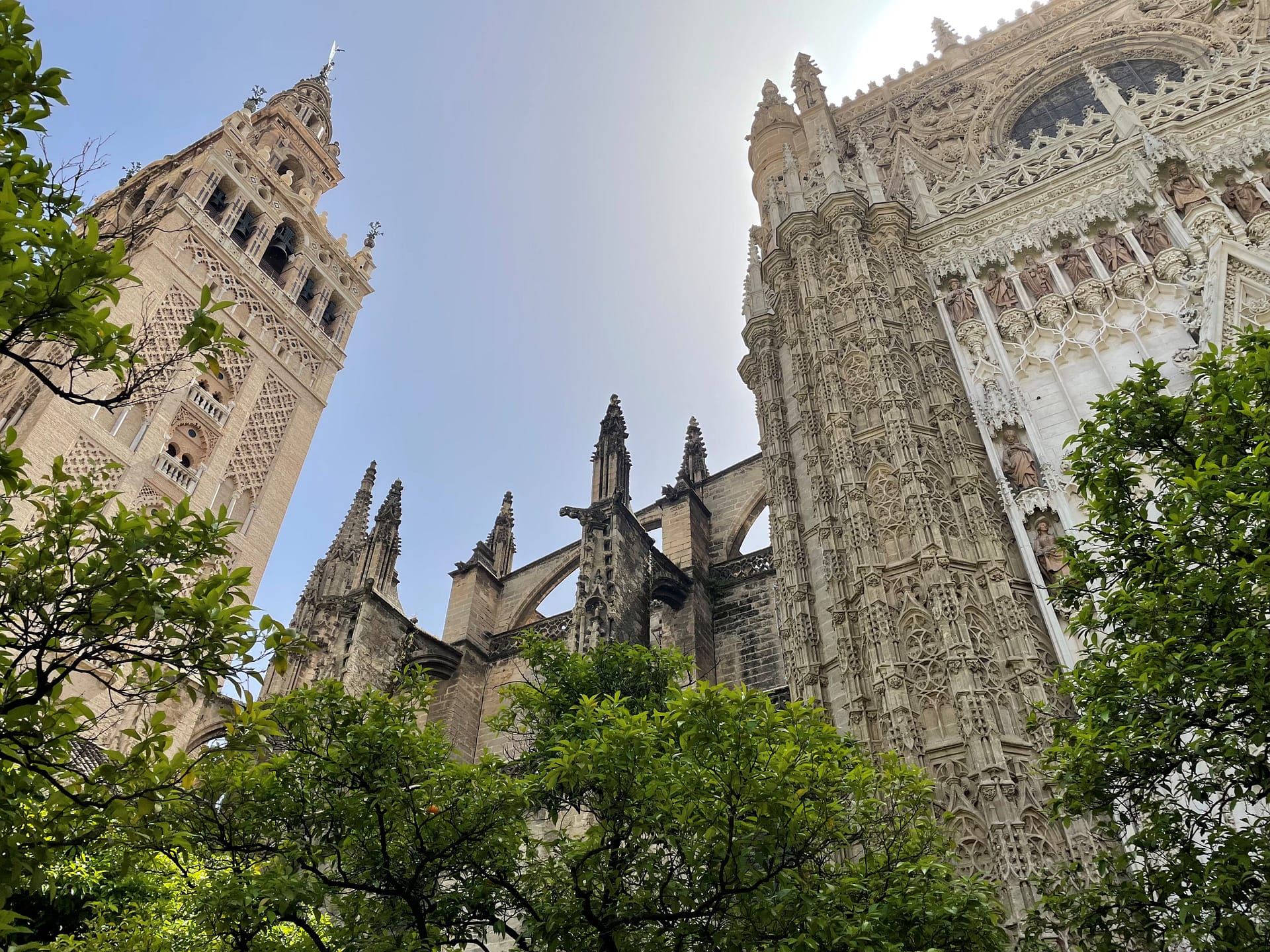
Royal Alcázar Palace
Built in the 10th century when Spain was under Moorish rule, the Real Alcázar is a unique blend of architectural styles including Islamic, Gothic, Romanesque and Renaissance. Overall it exudes strong Moroccan vibes with its Mudéjar ornamentation and stunning ceramic tile decoration. Did you know that the Alcázar was used as a filming location for the hugely successful HBO TV series, Game of Thrones? The palace stood in for the Water Gardens of Dorne in various scenes in four episodes of Season Five and one of Season Six.
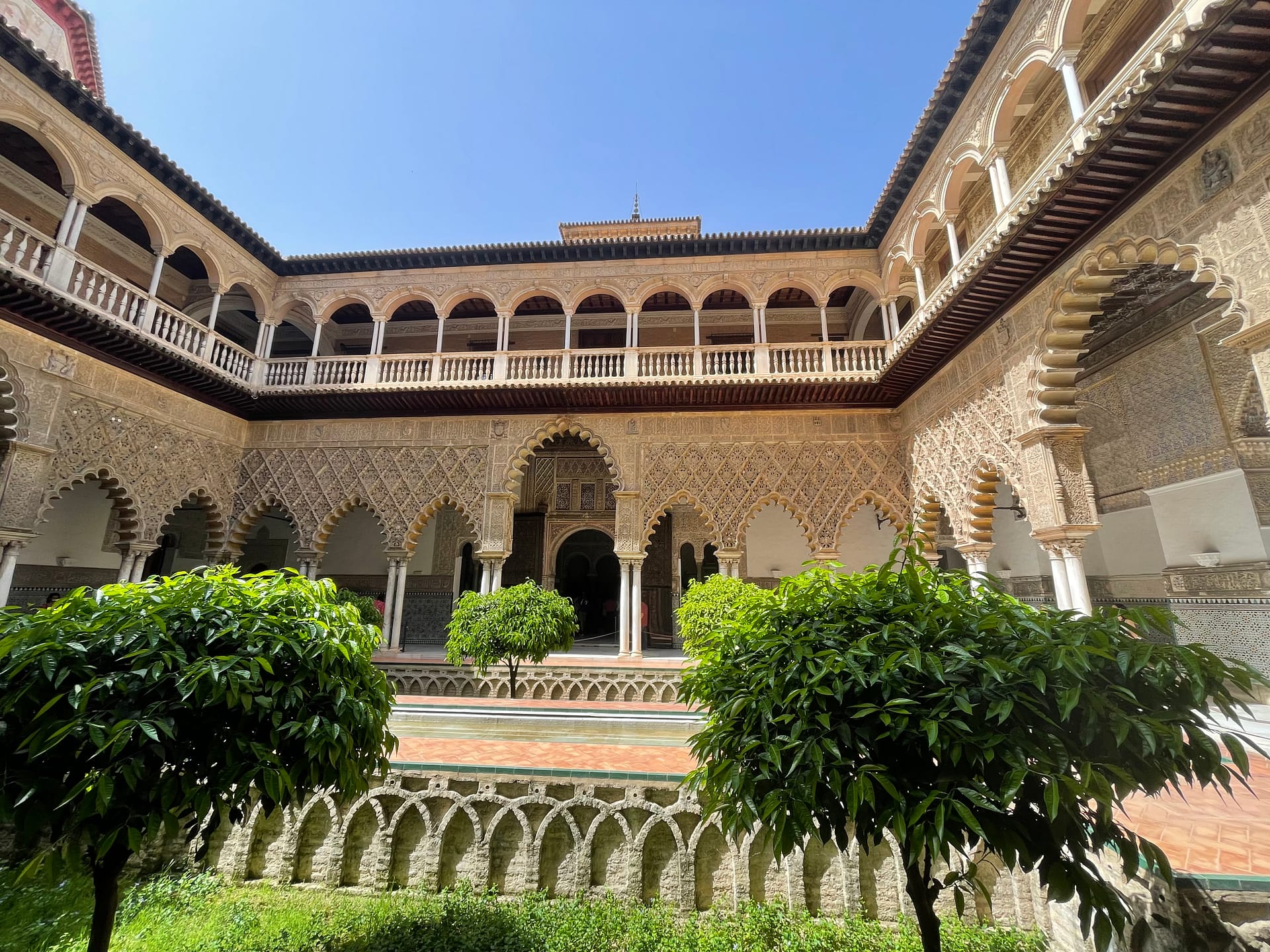
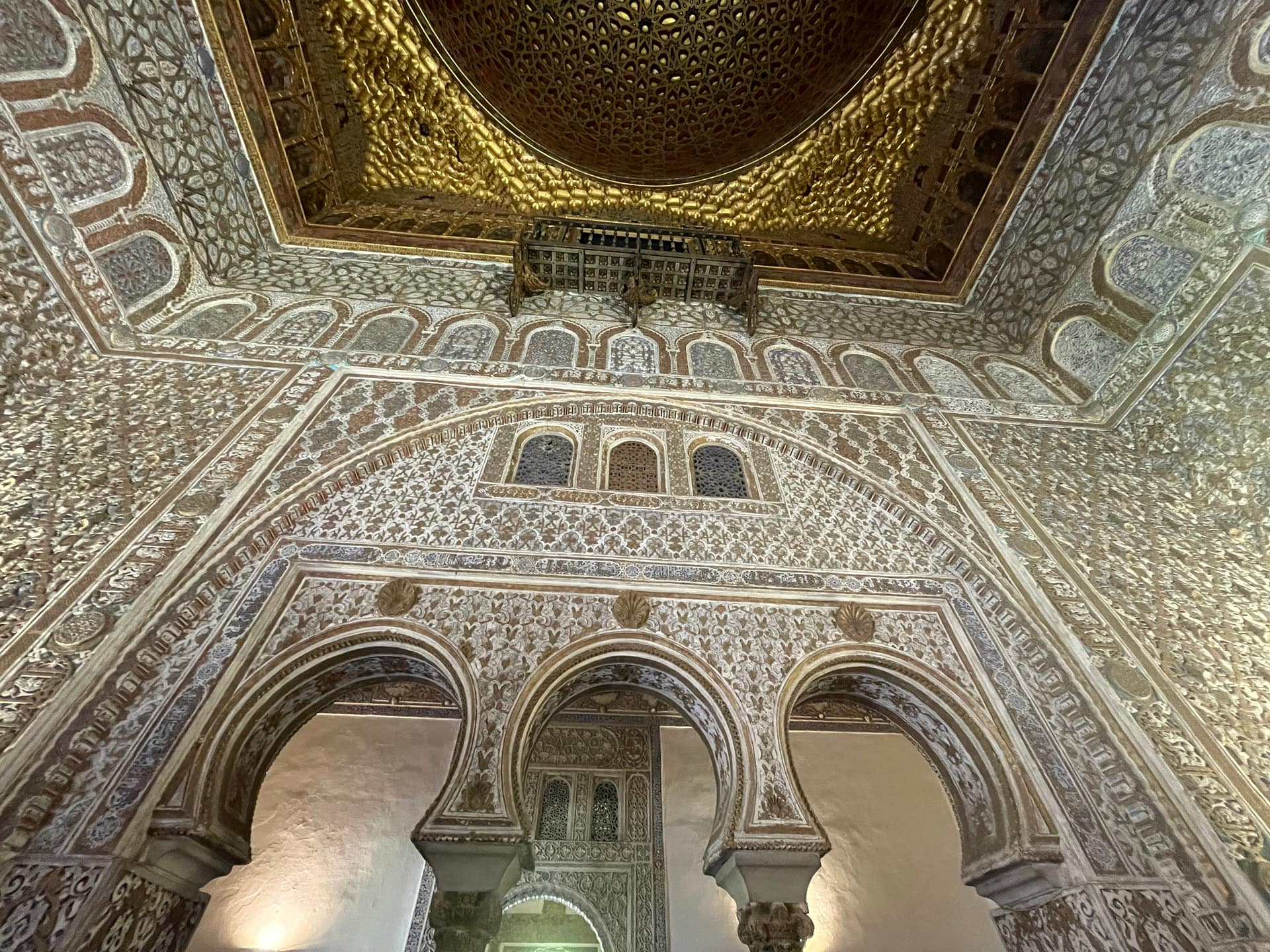
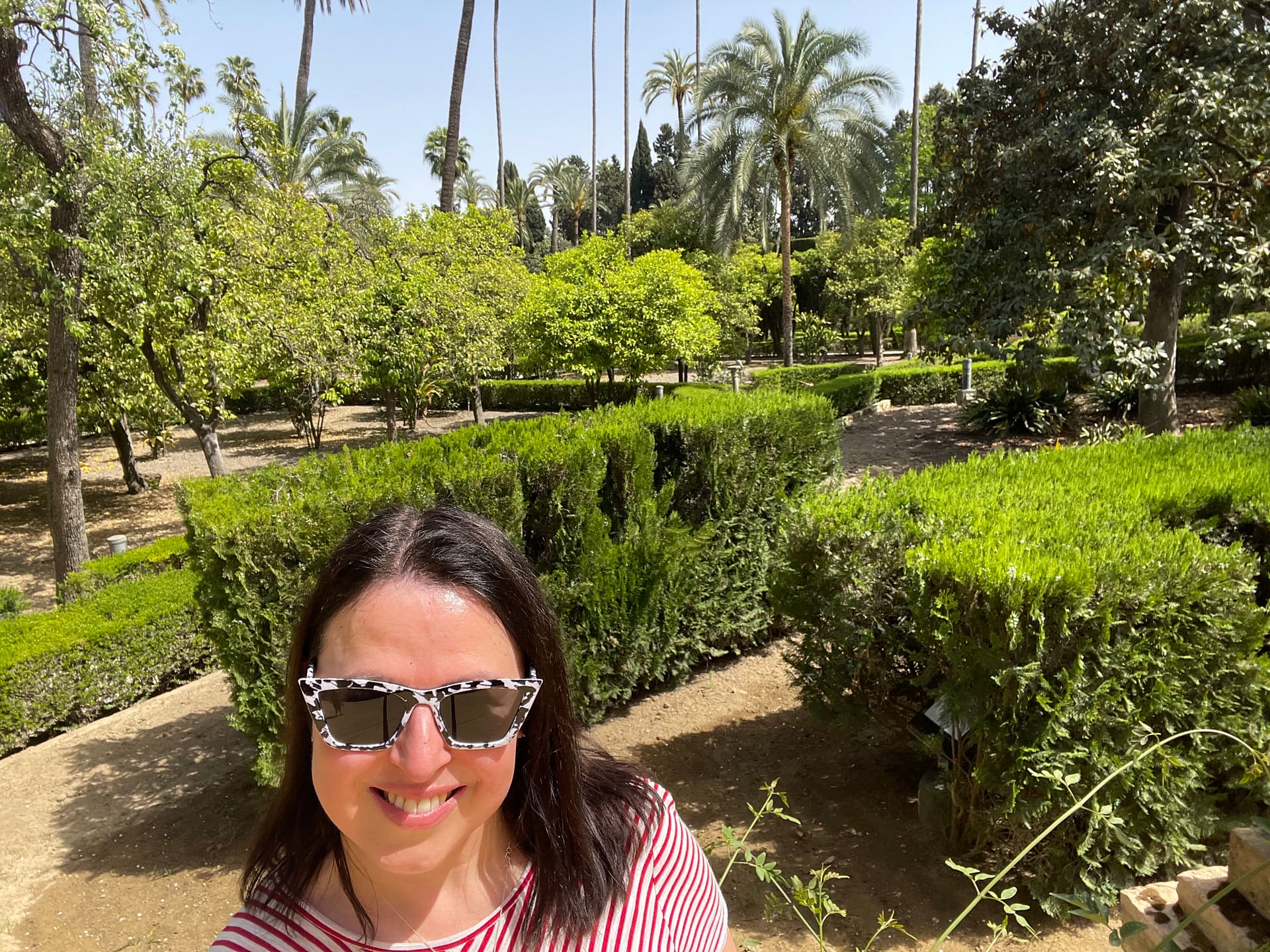
Plaza de España
Last stop on my itinerary was the jaw droppingly gorgeous Plaza de España located in Maria Luisa park. The Plaza was built in 1928 for the Ibero-American Exposition of 1929 to showcase Spain’s industry and technology exhibits. The complex is a huge half circle with a stunning mix of architectural styles including 1920s Art Deco, Spanish Renaissance Revival, Spanish Baroque Revival and Neo-Mudéjar styles. Arriving here felt just like being on a movie set. No wonder because scenes from Lawrence of Arabia (1962) and Star Wars: Episode II – Attack of the Clones (2002) were filmed here. As well as admiring the architecture, I was lucky enough to enjoy some live flamenco dancing underneath the arches of the Plaza.
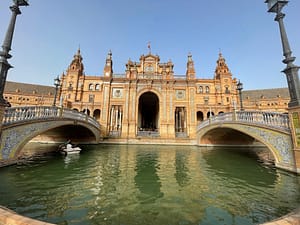
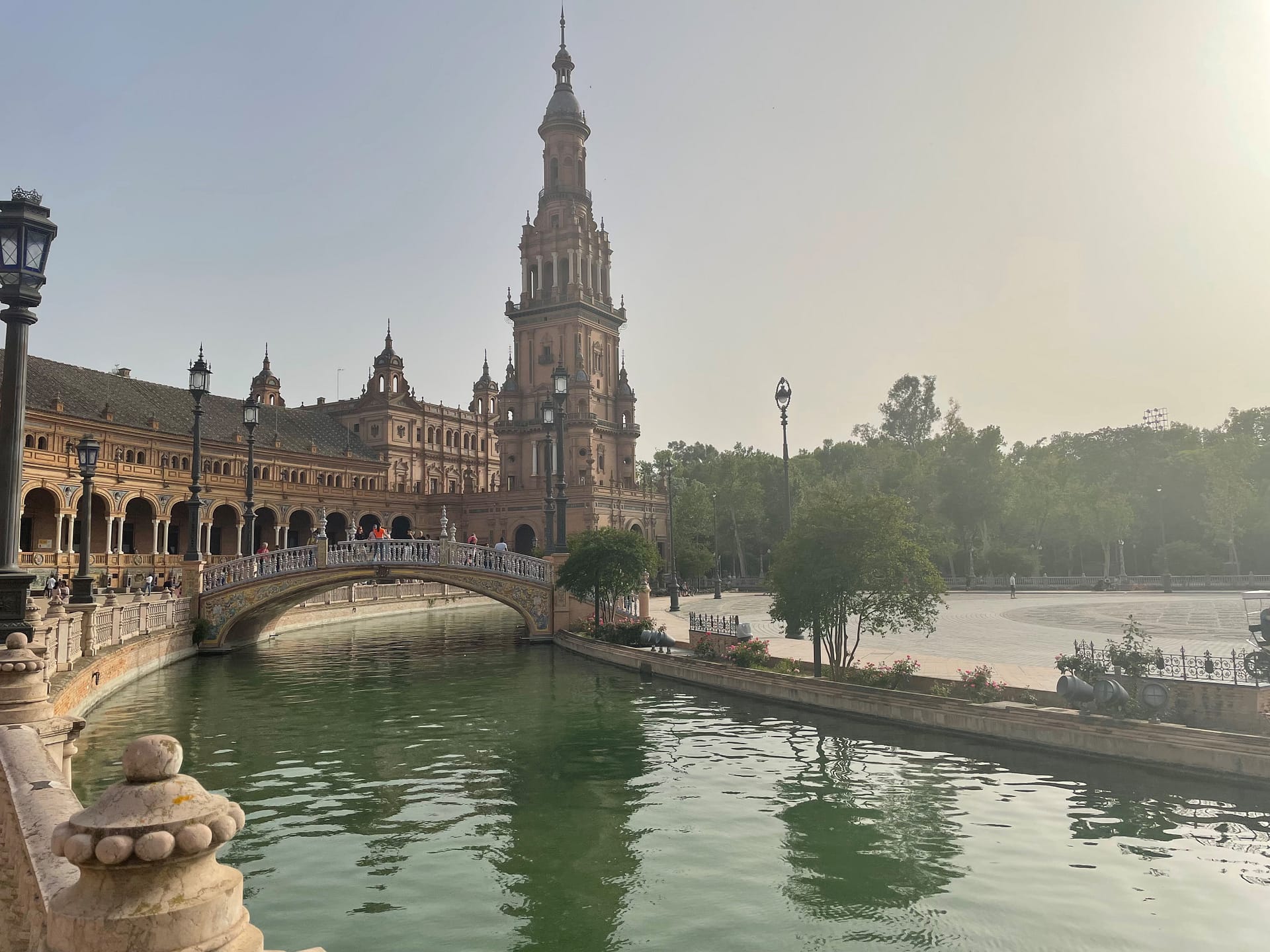
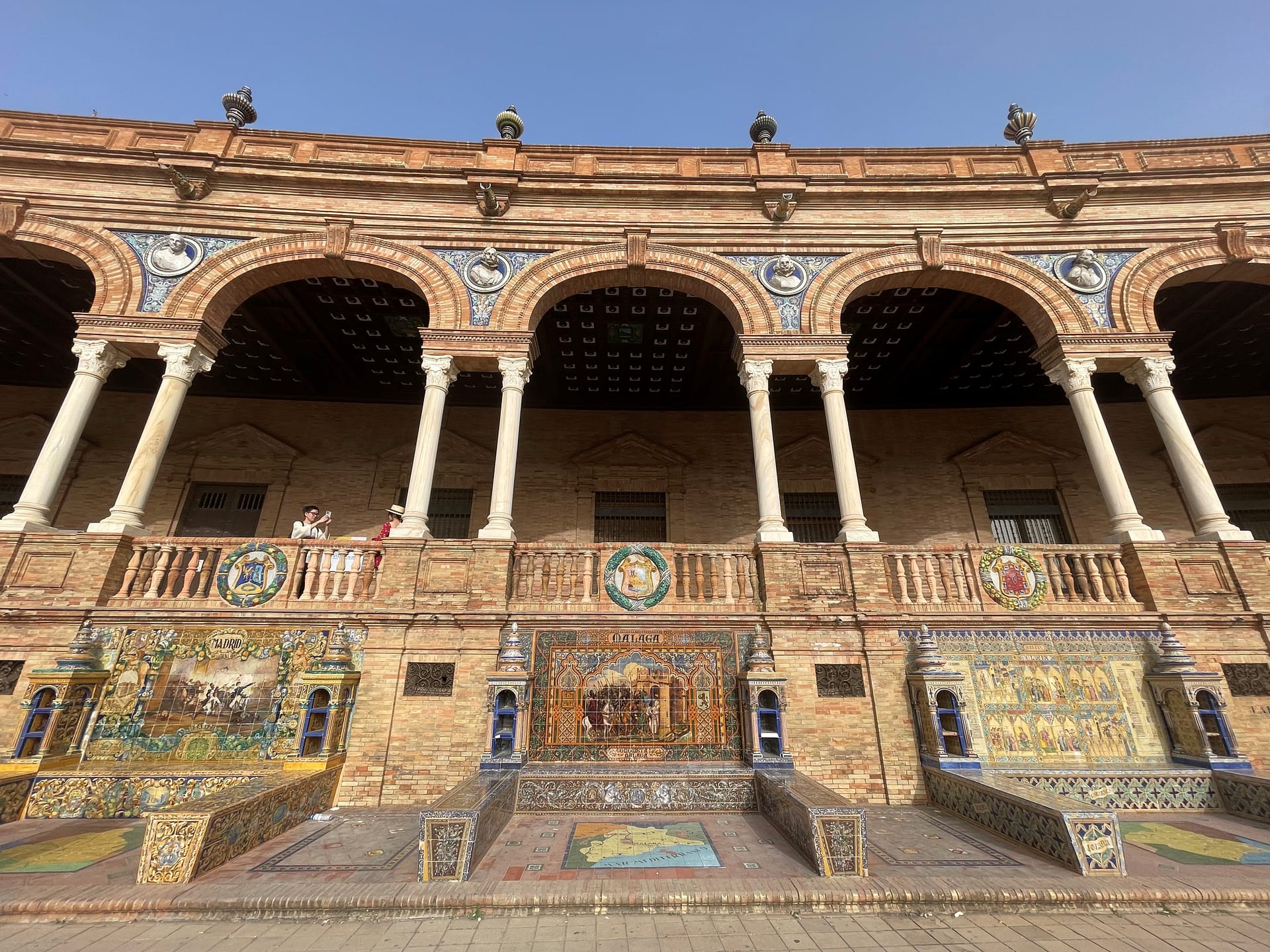
There are so many reasons to fall in love with the ravishingly beautiful Andalusian capital city of Seville. The skin warming sunshine, abundance of tapas bars, stunning architecture and the rich history that is present in every street you walk through. So pack your bags and make Seville your next city break destination!
All photos copyright of the author.
